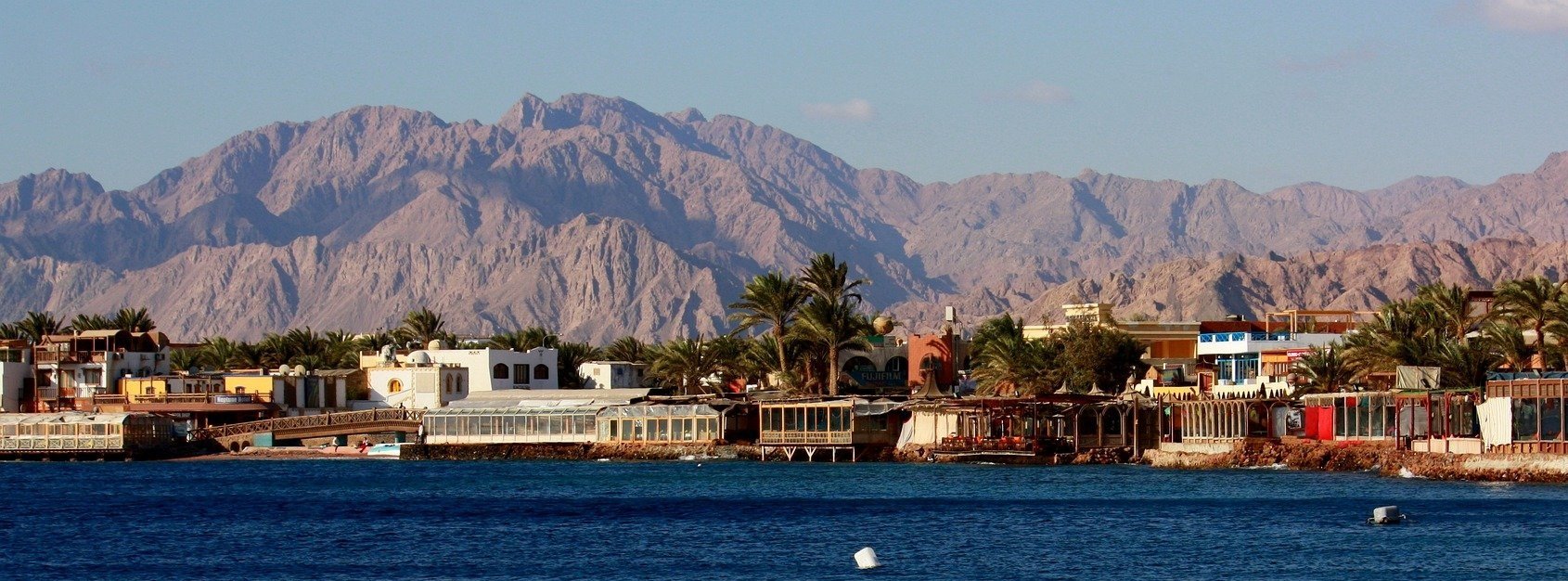
Beyond Sharm
Ten thoughts post COP27
from Sophia Murphy,
Executive Director of the Institute for Agriculture and Trade Policy (IATP)
Thought Leader of the Shamba Centre for Food & Climate
Our thought leader, Sophia Murphy, went to the UN Climate Change Conference in Sharm el-Sheikh (COP27) in December 2022. She shares with us how she feels about the outcomes at the conference and how the Shamba Centre can help move the food and climate agenda forward in the coming year. Here are ten thoughts she shared with us.
1. Food at last a climate priority!
Food was all over COP27, both as a theme and a negotiating issue. This is relatively new. Before, it didn’t appear at all in the discussions. This time, it was a big piece of the governments’ negotiating agenda.
2. Time to address the loss and damage from climate change
The huge outcome was to get the “third leg of the financing stool” in place. After the other two legs -- mitigation and adaptation, to finally accept loss and damage, is an important acknowledgement that there is already harm to the poorest. A huge effort from civil society organizations went into this issue and we are pleased to have got the fund out as a result. But the road is only just beginning. There is little money in sight to pay for it, any more than there is enough money to pay for adaptation and mitigation.
3. The private sector finally realises that climate change is serious
This time, the negotiations on finance moved forward, but the ambition did not. The aspirational statements from COP26 in Glasgow were actually rolled back, especially in terms of phasing out fossil fuels. I think it was all about the money this time, because the private sector — which dwarfs the public sector — realises that climate change is serious. Some companies are worried because they are losing money. Others see opportunities to make money.
4. The problem with carbon offsets
There is this big concern that the fossil fuel sector is making deals with agri-business around how they will achieve their net-zero commitments, and off-set their emissions. We have no standards for meaningful offsets at this stage. So one of the big items I think Shamba Centre should be thinking about is, what counts as an investment in a sustainable future versus an offset that is just letting somebody off the hook… because they simply can buy credit in order to carry on with their emissions, with business as usual. How do you lock these net-zero commitments into real emission reductions is the big challenge — and how do you make your removals or your offset meaningful. We desperately need no end the empty promises!
5. Carbon sequestration is bogus
Selling credits for soil carbon sequestration is pretty much bogus. There is carbon in soil, and that carbon can be increased through good practice. But to practise agriculture the way we practise it, and to expect that that carbon will be left there for any serious amount of time is fantastical. Yet agricultural ministries in the developed and developing countries alike, are all very excited by the money in offsets. Governments would love to fund their future agriculture budget by selling things like carbon sequestration. I think that you will be navigating that at the Shamba Centre all the time. You will need to work out how you are going to set a bar for investments to be sure you are moving in the right direction. It’s never going to be perfect, but you need to reflect on how you are going to make this more than an empty game. At the moment you can see the private sector chasing farmers to sign up to be part of their carbon sequestration plans. Yet carbon sequestration is very expensive to monitor effectively, and many schemes lack effective monitoring. It’s all voluntary for now, but there is a lot of pressure from agri-business to get governments to regulate, yet not in ways that would ensure real emissions reductions.
6. The big narrative on food
The Koronivia process had set up a work programme to talk about what agriculture should look like in the context of climate change. The workshops held under the work programme have been pretty good, pretty interesting. But when it came to meetings in Bonn earlier this year, the governments shied away from supporting agroecology, from certain kinds of language that makde developing countries feel trapped - they feel like this is a way to preserve them in some sort of past that stops them from increasing their productivity and protecting their food security. I think this is a myth – that agroecology is about tradition but not science, or that productivity cannot increase under systems that work with nature instead of forcing it. I would love to work with Shamba on this big narrative about what’s going to feed us and how we are going to be fed. Right now there is a lot of pressure to intensify our agriculture and produce more food (wheat, rice, maize, etc.) with some governments in the global South insisting that there is no room in this sector for contributing towards climate through mitigation. I don’t think that that is true. But the result is that Koronivia, instead of coming up with recommendations on ways to move forward, is now discussing another round of workshops and stalling for time.
7. Industrial agriculture is failing
We grow too much of some food, but that hasn’t helped us end hunger, and we are making a lot of people sick with the food that we do produce. The places where food is abundant are associated with a lot of food-related diseases. A whole system change is needed and it can’t start in the global south where people are hungry. It has to start in the places where we are already throwing away large amounts of food every week, from the fridges of wealthy countries, and from our supermarkets where 24-7 service creates waste, while people get sick from being overweight or from being malnourished, not getting the nutrition they need even if they get enough calories. So I say, show me how industrial agriculture is feeding the world — Well, it isn’t. So why not try another approach?
8. Agroecology is about modernising agriculture
One of the things the Shamba Centre could work on, is what it really means to “modernise agriculture”. Too often agroecology is described as anti-technological, when it is actually very connected to new technologies.
9. We need to get fossil fuels out of agriculture
There’s a fossil fuel non-proliferation treaty — That’s one of the initiatives highlighted at COP27. This is great. I came out saying that one of our objectives needs to be to get fossil fuel out of agriculture. It’s a solar-powered industry. It’s the original solar-powered industry!
10. Stop moving the CoP !
It’s madness that they organise the climate conference in a different place every year. In Egypt, they were still building the venue when we arrived. The acoustics were dreadful, there was not enough water, not enough food, not enough toilets. It’s completely unnecessary. When will Sharm El-Sheikh host another conference with 30’000 participants? I think COP should always be held in the same place, like for peace talks. And deal with the North-South imbalance in a different way than taking this roadshow around the world, with all the costs and the environmental footprint that you can imagine. Not to mention that participants are lost half the time, including the negotiators themselves, unable to find which room they need for the talks.
Image by koko sdcsdc from Pixabay
Big disappointment that governments didn’t strengthen their commitment to limit global warming to 1.5°C. But not everything was negative. The huge focus on food and agriculture was good news, as well as the acknowledgement that developing countries need compensation for the loss and damages from climate change.
December 2022

